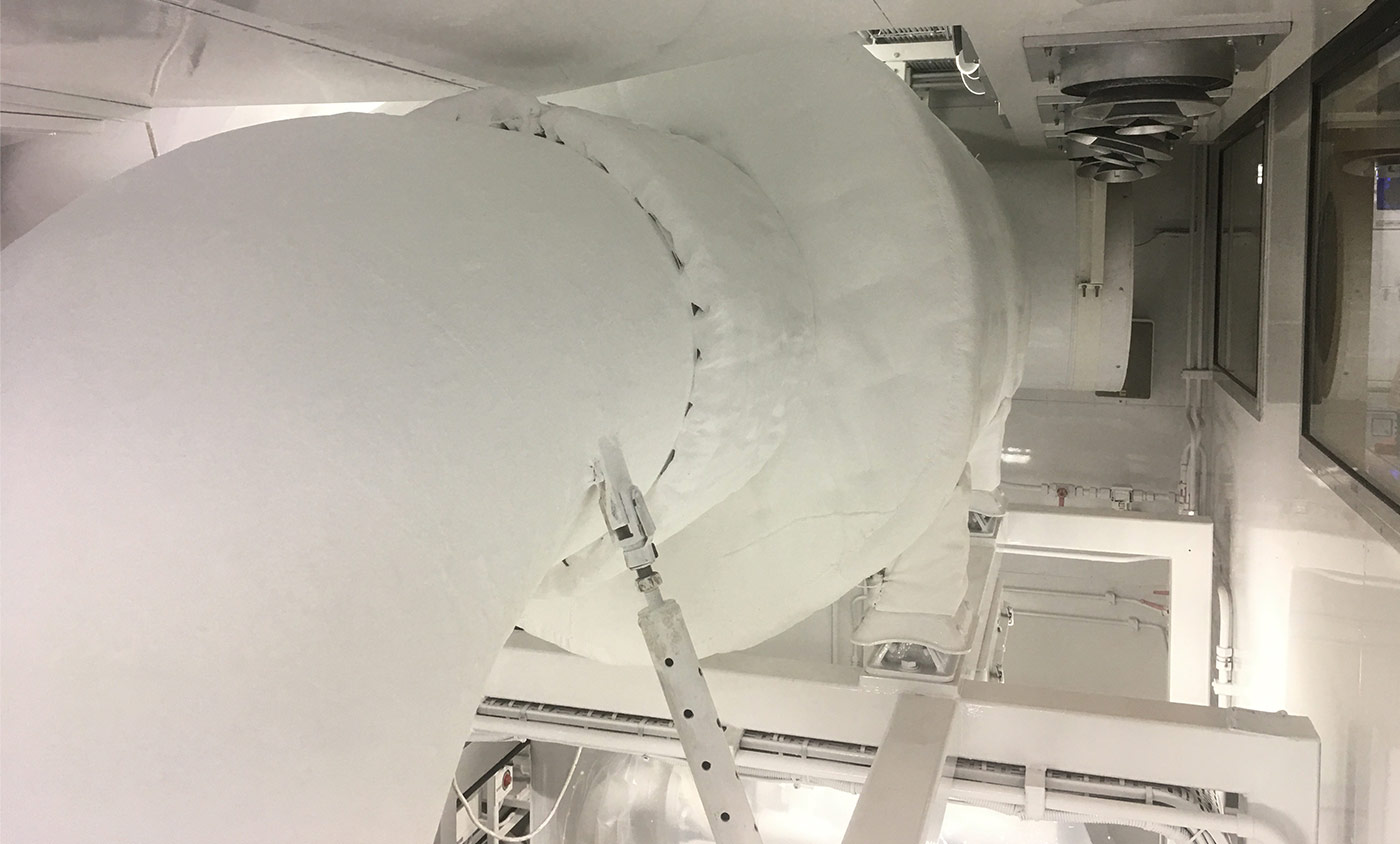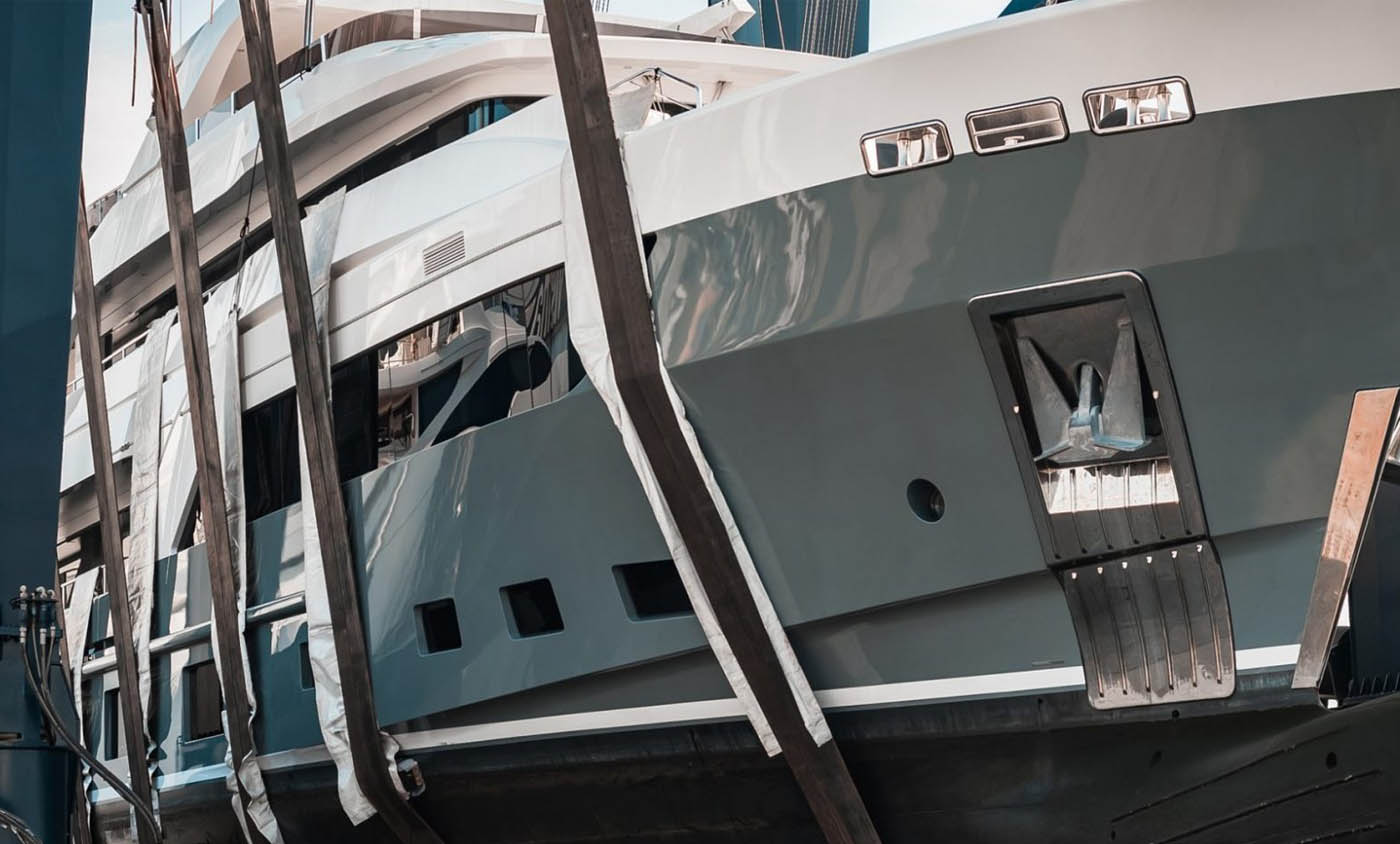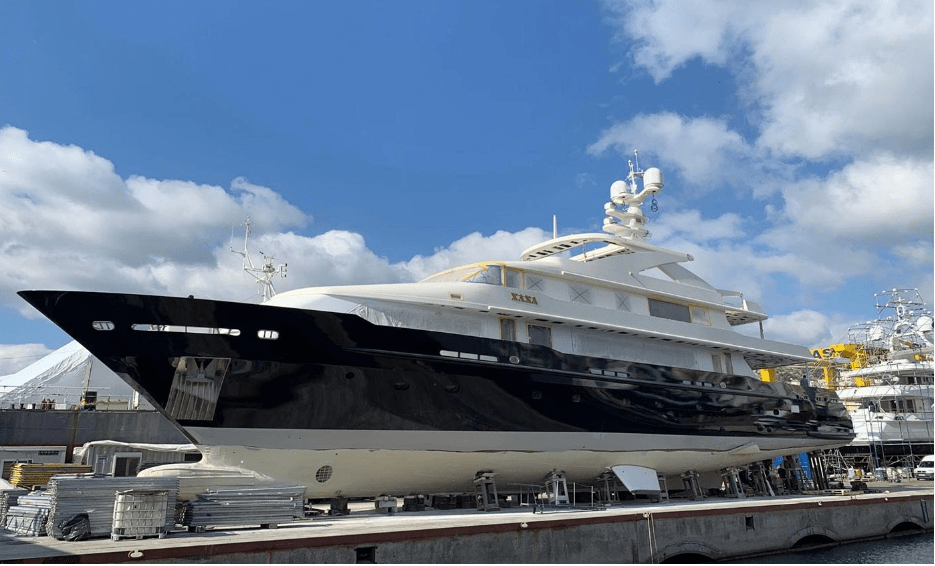Marine Insulation: What do we mean by ship, yacht and boat insulation?
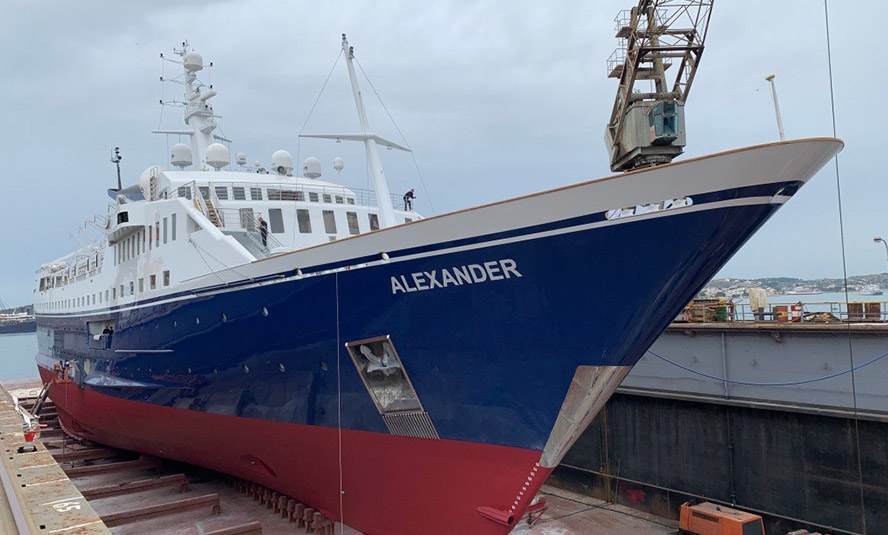
What do we mean by ship insulation and why is it necessary for every super/mega yacht and pleasure craft? Which are their applications and what are the materials used? Learn everything about insulation on ships and yachts and enjoy safety and comfort on board!
What is ship insulation?
The term insulation is used to indicate that a surface or equipment is isolated from liquids, heat or sound. To achieve this, specialized materials are used holding specific properties depending on the type of insulation (e.g. from heat or sound).
Likewise, ship insulation is performed when the materials used are specialized for marine applications. Their purpose is to insulate, inside and outside, from thermal energy transfer, vibrations and noise.
There are many places one can apply insulation materials on a yacht or ship. These insulating materials are usually placed in the following areas:
- Ceilings
- Floors – deck
- Doors
- Engine rooms
- Hull & superstructure
- Construction boosters extractions (stiffeners, T-webs)
- Exhausts & piping
- Air conditioning ducts
Marine insulations are found in almost all types of vessels such as:
- Commercial ship
- Passenger ships
- Cruise ships
- Large pleasure boats (mega yacht or super yacht)
- Navy ships
- Small pleasure boats (speedboats)
- Coast Guard vessels
- Marine facilities and offshore platforms
What are insulating materials?
Insulating material is any material that inhibits the transmission of either heat, sound – noise, or electricity. They differ from materials that offer sealing and waterproofing. In marine insulation the most common materials are:
Thermal insulating materials: They are usually lightweight materials with small mass and large volume, that also have a specific resistance of heat transfer from the outside to the inside or vice versa.
Soundproofing materials: Similar to thermal insulation, but their main feature is that they prevent spreading of airborne or vibrational sound, reducing the transmission of noise and vibrations of the structure.
Sealing materials: Materials that are either natural or have been processed to be resistant to water molecules’ penetration.
What materials are used in marine insulation?
Usually, insulation for ships and pleasure boats (mega yacht, super yacht) use products based on inorganic fibrous insulating materials (mineral wool). However, the development of science and technology has made great strides in recent years.
Thus, insulating materials based on rock wool (a type of mineral wool), glass wool, ceramic wool, flexible closed-cell elastomeric materials (Armaflex type), polyurethane or aluminum are now widely used. Marine insulation can be also achieved by using a combination of several material bases. Mascoat (Alkyonis’ pioneering product), is such ana example, where the product offers an innovative way of insulation, in a coating form. It is a composite water-based ceramic coating partly composed of air particles held together by an acrylic binder.
Contemporary materials and products have the ability to offer quality insulation, being lighter in terms of weight.
It is worth noting that the insulating materials, apart from the insulation of ships, must be designed in such a way as to meet the regulations set by the International Maritime Organization (IMO) regarding fire protection and thermal & sound insulation.
The types of insulating materials for insulation on ships (commercial, passenger, super yacht, mega yacht, military)
There is a wide range of insulating materials, which either insulate from water molecules, heat, flame or sound and reduce noise transmission. Each material has its own application and specific features and benefits.
- Stone wool
- Fiberglass
- Microporous structural
- Elastomeric Pipe Insulation
- Fiber Blanket
- Aluminum Coating Insulation
- Foam
- Wired mat (High density mineral wool with galvanized mesh)
How is the insulation of ships different from that of buildings or houses?
The insulation of ships is quite different from that of residential or industrial facilities. Their difference lies mainly in the fact that the insulating materials have specific properties. The main differences lie in four material characteristicσ:
- Endurance
- Performance
- Type of insulation
- Climate change
1. Endurance
The most important property that ship insulation materials must have is their resistance to moisture and temperature fluctuations. The insulating materials to be used should not be affected by humidity and sea water. Frequent contact with water molecules, through sea or humidity, is one of the most important factors of corrosion. That is why, unlike insulation in houses or buildings, marine insulation focuses on materials’ endurance.
2. Performance
In ship insulation, the materials used should be much more efficient and insulating for more than one reason. In other words, they should be able to insulate simultaneously from heat, fire and sound in order to be more efficient. That is why these materials have a much stronger performance in thermal insulation and sound insulation, while at the same time they also have a great resistance to moisture.
3. Type of insulation
A house can be insulated solely from fire or moisture. A ship cannot be insulated solely for sound or heat. It must be insulated simultaneously for sound, moisture, heat and flame. So, the materials that will be used must be able to meet all these needs, and in combination with other materials to protect the ship’s construction.
4. Climate change
A vessel, whether yacht or military, during its life travels to many locations, each with its own climate. The insulation of buildings or houses cannot and is not intended to withstand this frequent change of climates and multiple climatic conditions.
What are the types of ship insulation?
The most common types of insulation carried out on ships and yachts are:
- Fire protection
- Thermal insulation
- Air conditioning and ventilation insulation
- Engine room insulation
- Acoustic insulation
- Pipe & exhaust systems insulation
The various types of insulation, differ in terms of application depending on the space or equipment of the vessel. Each type has its own requirements, difficulties and applications depending on the ship or yacht.
1.Insulation for fire protection
Super yachts and mega yachts, commercial ships, Navy vessels or offshore platforms, must have fire safety according to IMO regulations. In ship insulations, fire safety is about the construction and how long it will remain intact without collapsing in the event of a fire.
The materials that are usually used for this type of insulation, are based on rockwool, a non-combustible material that prevents the spread of fire. The materials’ selection is made according to their certificate corresponding to different types of fire safety (e.g. A-60, A-30, A-15) and are applied in areas of high risk (engine room, stairwell, gallery, elevator).
In commercial or military vessels, fire safety is realized based on specified instructions and certificates, while in yachts (super and mega yachts) is achieved with a combination of materials, so as to include acoustic insulation as well.
Fire safety insulation is one of Alkyonis’ expertise since 1993, offering complete fire protection solutions (classes A-60, A-30, A-15) for every type of vessel.
2. Thermal insulation
Thermal insulation prevents heat transfer from an inside part of the vessel to the environment and vice versa. In ship insulation, thermal insulation is very often applied either to limit the heat generated by the engines from being transferred throughout the facilities, or to protect the crew or passengers from overheating.
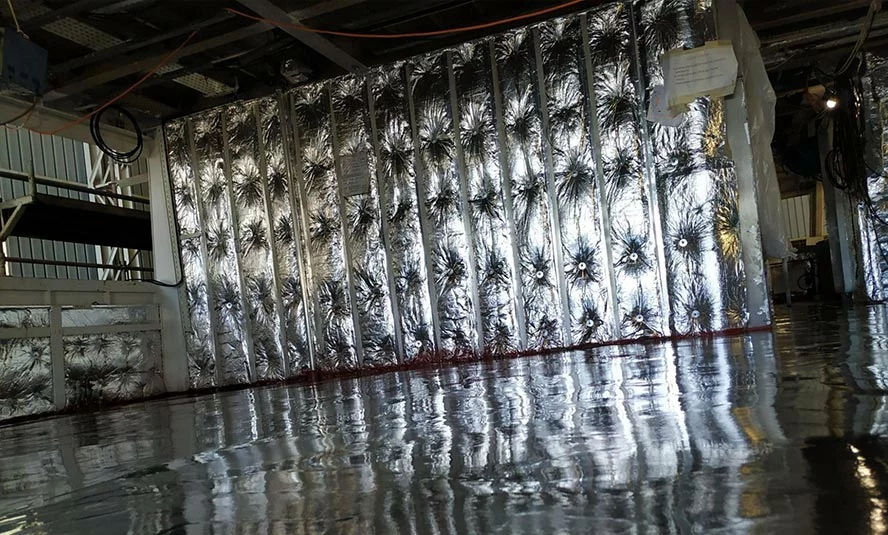
In the case of pleasure boats, thermal insulation provides a pleasant environment and ensures comfort during the journey. Regarding commercial ships carrying containers, there a frequent objective is to maintain a low temperature.
At Alkyonis we have the know-how and experience to offer complete thermal insulation for ships with stone wool sheets or blankets. To ensure thermal insulation on mega and super yachts, we offer an additional coating, Mascoat Marine-DTM. A very light material, specially designed for demanding marine environments, which can simultaneously provide thermal protection and protection against condensation.
3. Acoustic insulation
A very important part of insulation is acoustic insulation, especially when we are talking about a mega yacht or any pleasure boat. Engine noises on ships, boats and large yachts are strong even at low speeds. For someone who works on board, stays or is on vacations, it is extremely unpleasant to shout whenever you want to talk, or be bombarded with a continuous loud sound that damages their hearing and overall experience.
On ships, sound is also transmitted through vibrations. These sound vibrations can be spread to every corner of the ship and create many unpleasant problems for the staff, passengers and even for the structure itself. There are even specific standards that determine noise and vibration emissions, as well as limits that a ship or a person can withstand. That is why soundproofing of the noises emitted by the engines, generators and any other part of them (electrical, oil or turbine), is of key importance in the overall insulation of ships.
At Alkyonis we offer tailor-made sound insulation solutions for yachts combined with Mascoat Sound Control-dB coatings that stop vibrations and prevent sound from becoming airborne noise.
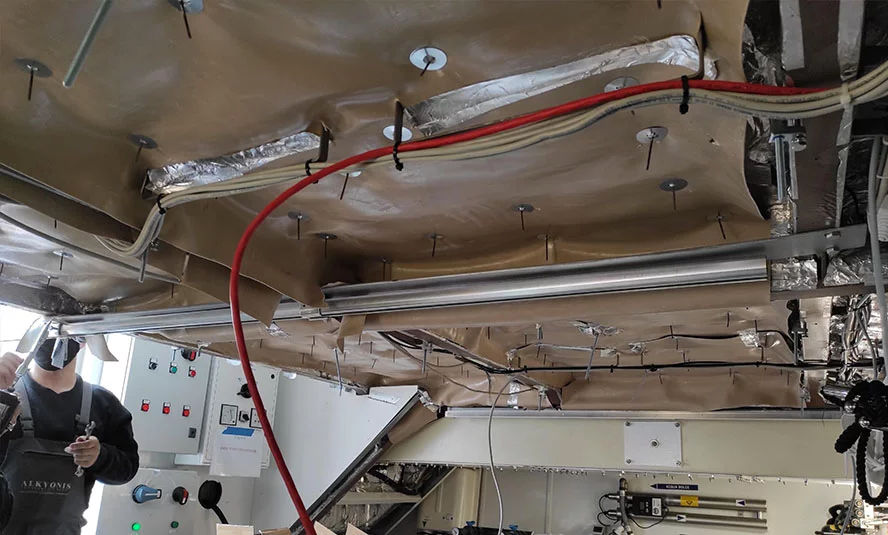
4. Insulation of air conditioning and ventilation ducts, pipe & exhaust systems
Air ducts and air conditioning pipes, as well as any type of pipe where gases pass, should be among the first places to be insulated. This is because they carry sensitive gases, such as air ducts or air conditioning pipes, which must remain at their original temperature. For this reason, they are either covered with materials, or with additional layers of stone wool for thermal insulation or sealing.
There are also pipes that carry high-temperature gases, such as steam or chimney pipes, which effectively remove heat from machines or engines. These pipes must be made of materials extremely resistant to high temperatures, such as stainless steel. They must also be lined with mineral wool for even better insulation that will ensure they remain unaffected by temperature differences.
Regarding the vessel’s engine room, where exhaust ducts are usually a visible equipment, our company’s products ensure not only an efficient insulation, but also an excellent visual effect.
5. Sealing – Waterproofing
Waterproofing is a type of insulation intended for a marine environment and designed to protect ships, boats or tankers from saltwater or fresh water and consequently their corrosion.
They are usually carried out through coatings with special paints, epoxy primers, while antifouling coatings are also available.
Also, with the right materials, a boat can be leveled and insulated before carpeting, thus reducing the transmission of heat and noise.
Ship insulation application
Ship insulation does not have as many DIY options as home or building insulation. You need to find specialized professionals with experience on every type of ship: military, commercial, passenger or pleasure boats (mega yacht or super yacht). Experience and expertise are essential because each type of insulation has its own requirements, as every yacht has its own design. In a military or passenger ship the needs for fire protection are different, while in a pleasure boat great emphasis should also be given on the aesthetic effect.
The most common problems in ship insulation
The most common problems a ship faces in regards to its insulation are:
- Damaged or worn-out insulation
- Ineffective insulation due to age
- Over-insulation (excessive use of insulating materials)
- Contaminated insulation
- Destruction of insulated equipment
- Insufficient insulation – acoustic insulation
- Condensation of surfaces & equipment
At Alkyonis we have over 30 years of experience in the field of marine insulation, with experienced technicians and engineers who possess substantial know-how. We look after every vessel and we are committed to holistic and smart solutions for ship insulation. From super and mega yachts of high aesthetic requirements, to exclusive contracts of the Hellenic Navy and commercial ships all over the world.
Apart from our extensive experience, expertise and know-how in ship insulation, our clients trust us because we offer an innovative way of applying insulation combined with excellent application of strong insulating materials. Being the official dealer of Mascoat, a world leader in the control of corrosion under insulation, and especially in thermal and sound insulation coatings, we are committed to perform the most efficient insulation that maintains the proper temperature, protects against noise and controls corrosion, without affecting aesthetics.
Contact a representative today to learn more about how to apply a long lasting, guaranteed results insulation to your yacht.



